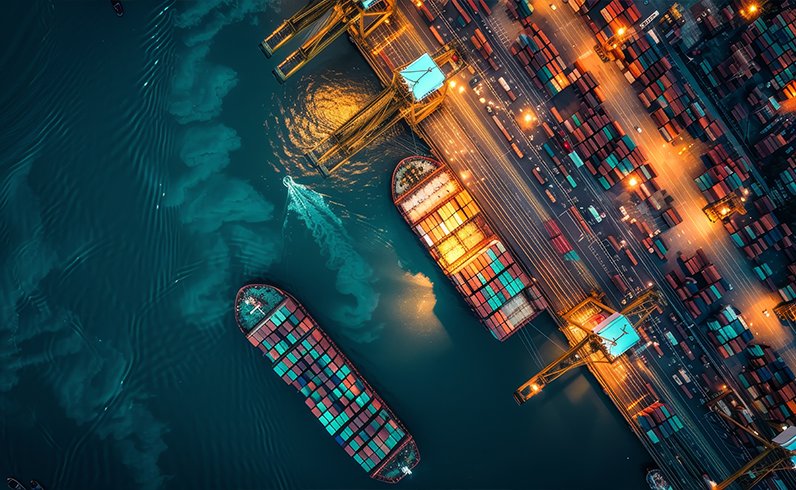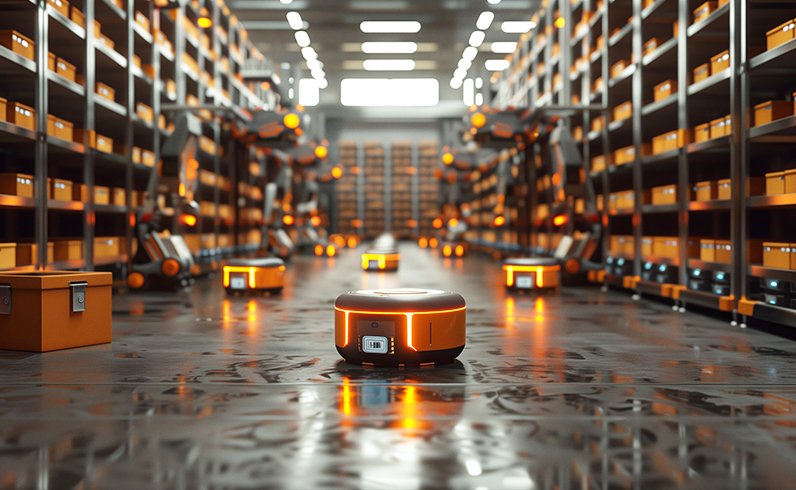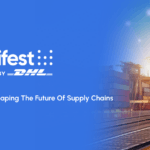Efficiency, accuracy, and consistency are the front and center of the logistics industry, valued at over $570.9 billion by 2031.
The sector is undoubtedly the backbone of global trade with the sole mission of moving goods from manufacturers to customers efficiently and reliably. Additionally, the everyday pressure to optimize operations, meet market demands, align to dynamic customer needs, and reduce costs has pushed logistics companies to adapt and innovate. Here, AI-powered RPA (Robotic Process Automation) Tools enter the landscape as game-changers in an era of technological breakthroughs. Indeed, RPA continues to improve productivity by 86%, compliance by 92%, and accuracy by 90% while reducing cost by 59%, according to Deloitte.
What Is an RPA Tool?
RPA tools are software technologies or bots that simulate human interactions with digital systems. These automate predetermined and rule-based tasks to streamline logistics processes with an unprecedented level of efficiency, accuracy, consistency, and of course customer satisfaction. As a cornerstone of the rapidly growing RPA market, expected to reach above $13 billion by 2030, these tools are poised to transform the global logistics industry with meaning and impact.
What Are the Different Types of RPA?
There are three types of RPA Tools, categorized as:
- Attended RPA: These tools require human intervention to perform any task.
- Unattended RPA: These operate autonomously following a rule-based process.
- Hybrid RPA: These combine both types of tools to provide end-to-end automation.
How Does RPA Affect Supply Chain Management?
RPA has introduced a significant shift in supply chain management, improving return on investment (ROI). This automation minimizes errors, speeds up operations, and reduces manual efforts while allowing human workers to focus on more complex and important tasks. Additionally, RPA can work around the clock across different time zones, ensuring operations continue without interruption with increased reliability and performance.
However, the implementation has never been easy, especially with legacy systems. Additionally, the initial investment in RPA technology, a paradigm shift to an automated system, the need for software upkeep, and security risks pose significant hurdles as companies navigate the journey of logistics automation. Despite these challenges, when it comes to the global supply chain network, the benefits outweigh the challenges with substantial and transformative improvements.
In recent years, the advent of Artificial Intelligence (AI) has further enhanced the capabilities of RPA tools. The integration of AI and RPA, when deployed together as Intelligent Automation (IA), seamlessly connects every dot in the supply chain with high levels of efficiency and agility. This continues to drive innovation and operational excellence.


How Does AI Affect the Logistics Industry?
Global trade is rapidly rebounding, as is the logistics market, facing a dire need to adopt and embrace smarter digital transformations. In the past few years, many industry disruptions and cutting-edge technologies have emerged as a driving force to reshape how companies work, respond, manage, and optimize their supply chains. Among these, artificial intelligence is one such disruptive force driving modern logistics towards end-to-end automation. Indeed, the AI market is estimated to surpass $1.8 trillion by 2030.
The key benefits that AI bring to the table include:
- Enhances operational efficiency and supply chain performance.
- Analyzes historical data for accurate demand predictions.
- Optimizes inventory management to minimize stockouts.
- Enhances supply chain efficiency by anticipating demand fluctuations.
- Reduces the need for human workforce in repetitive tasks.
- Improves customer satisfaction with and proactive issue resolution.
- Enables proactive management to ensure continuity of operations.
- Enhances decision-making capabilities through real-time insights.
- Enables efficient resource allocation, promoting sustainable logistics practices.
7 Ways AI-Powered RPA Tools Are Changing Logistics Processes
Order Processing
With AI-powered RPA tools that pave way for a strong automated network platform, supply chain companies can achieve faster order fulfillment, touchless invoice processing, improved labor productivity, and reduced human intervention while enhancing overall operational efficiency. Additionally, it enhances reliability with timely deliveries and minimized errors.
Procurement Management
Trade content and compliance data are important aspects of procurement management. With RPA, companies can automatically check and validate compliances. This ensures that all logistics processes comply with industry standards and regulations while reducing the risk of legal issues and penalties. This further enhances overall procurement efficiency and reliability.
Shipment Tracking and Management
Automated systems provide real-time tracking of shipments with improved visibility and transparency for better management of logistics operations. Additionally, AI-powered analytics enable predictive analysis of potential bottlenecks, empowering companies to innovate impactful strategies for proactive management of delays while ensuring smoother operations.
Inventory Management
Incorporating AI-powered RPA, businesses can streamline, manage, and optimize processes like demand prediction, stock replacement, inventory allocation, stockouts, and cash flow management based on historical data and market trends. This helps improve operational efficiency, accuracy, and reliability to meet evolving market needs and dynamic customer demands.
Predictive Maintenance
AI-powered RPA tools monitor all processes with continuous data collection and analysis to identify potential failures and predict maintenance needs. This proactive approach reduces downtime, enhances operational efficiency, and extends the lifespan of machinery. This further ensures optimal machinery performance and reduces overall maintenance costs over time.
Route Optimization
IA, with a synergy of AI algorithms, machine learning models, and RPA tools, plays an integral role in analyzing traffic patterns, weather conditions, and other similar variables to select efficient routes for delivery vehicles. This comprehensive approach improves logistical efficiency under all circumstances by reducing travel time, decreasing fuel consumption, and ensuring timely deliveries.
Fraud Detection and Prevention
AI algorithms based on unusual data patterns and anomalies detect evolving fraud tactics. Additionally, RPA tools automate monitoring all transactions and activities across the supply chain. This collective approach acts as a fraud deterrent, enabling quick responses to suspicious activities, safeguarding all important assets and maintaining the integrity of logistics operations.
Partner With Delaplex To Get the Right AI-Powered RPA Tools
The future lies in the seamless integration of AI-powered RPA tools, significantly revolutionizing the industry with substantial improvements in efficiency, accuracy, consistency, and customer satisfaction. From automated order processing to procurement management and shipment tracking to fraud detection, these advanced tools are streamlining and optimizing all operations, carving a path for a more connected and intelligent global supply chain. However, the successful implementation of these technological innovations requires deep expertise, profound industry knowledge, and meticulous attention to detail.
That’s where Delaplex comes in. With years of experience and a proven track record in delivering smart and innovative supply chain solutions, Delaplex is your trusted partner in helping you get the right AI-Powered RPA Tools to transform your logistics processes. Our expert software and RPA developers will work closely with you to learn your unique business requirements and tailor solutions accordingly. Browse our case studies to learn how we optimize logistics performance and drive operational excellence.
Ready to transform your logistic processes with the right synergy of AI and RPA? Contact us today for a consultation.








